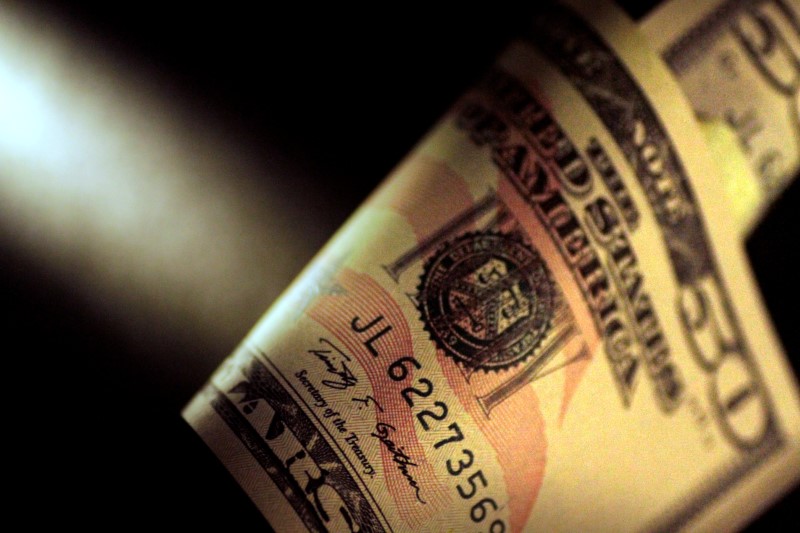NEW YORK (Reuters) – The U.S. dollar index inched lower in thin afternoon trade with Europe out on holiday for Easter Monday.
The dollar index <=USD>, which measures the greenback against a basket of six rival currencies, was down 0.09%. Against the euro <EUR=>, the dollar was 0.19% stronger at $1.091.
“The dollar rallied some overnight in holiday thinned trade, though pulled back in light N.Y. trade on Monday. There was zero data on tap, and focus largely remained on virus developments,” wrote analysts at Action Economics.
The number of coronavirus-related U.S. deaths reported on Sunday was 1,513, the smallest increase since April 6. The largest number of fatalities is still in and around New York, the most populous U.S. city with about 8.4 million people.
Financial markets remain on edge over the spread of the novel coronavirus as severe restrictions on personal movement drag the global economy into a deep recession. However, a slower news flow in the past few days has boosted risk assets modestly, and the safe-haven dollar has drifted modestly lower.
The greenback has also been pressured in the last few weeks by Federal Reserve measures that have flooded the financial system with dollars to address a liquidity crunch caused in part by demand for the U.S. currency.
“As we leave the acute phase of the crisis, the market will have to deal with the underlying data and the uncertainty of the CV-19 exit strategies. The latter will be piecemeal and bumpy. It’s a dance of fits and starts rather than a binary event of economy on/off. In turn, we expect another bump in the USD,” said Mark McCormick, global head of foreign exchange strategy at TD Securities.
Though the U.S. currency had drifted higher against the Australian and New Zealand dollars, those trends mostly reversed by Monday afternoon as the weekend’s OPEC+ deal failed to soothe supply concerns.
Major oil producers agreed to the output cuts on Sunday to prop up oil markets as the pandemic severely curtailed global demand.
“Oil-exposed currencies were subdued despite OPEC’s record production cuts of nearly 10 million barrels a day. The cartel hopes that the record agreement will help put a floor under oil prices. Still, the outlook remains troubled for oil markets given that the coronavirus has significantly damaged demand,” said Joe Manimbo, senior market analyst at Western Union Business Solutions.
(Reporting by Kate Duguid; Editing by Steve Orlofsky and Richard Chang)




















